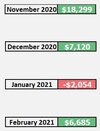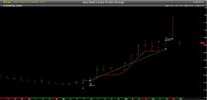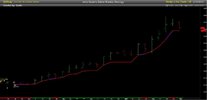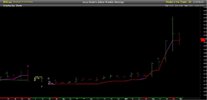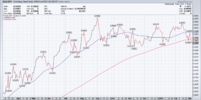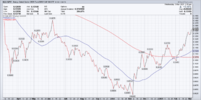- Joined
- 3 April 2013
- Posts
- 1,061
- Reactions
- 273
Thought this might be the best place to ask for a big favour from the systems traders.
Does anyone have a EOD/4 hr FX system they would be willing to share either here or privately?
Might be asking a bit much haha, even point me in the right direction would be great. Not trying to reinvent the wheel, find the holy grail or find a money printer, just something simple where I can control risk.
Not sure what I have done to skew THE algos, I have not looked at systems for a while, but I am seeing a bit of content re prop trading. Maybe there is an increase in firms after everything went nuts last year. Interested to see what it is all about, and where exactly their ‘trading is easy’ schtick breaks down.
Looking for a shortcut, but knowing I will still have a fair bit of work. Having a decent system or starting in the right direction will save a fair bit of time.
Does anyone have a EOD/4 hr FX system they would be willing to share either here or privately?
Might be asking a bit much haha, even point me in the right direction would be great. Not trying to reinvent the wheel, find the holy grail or find a money printer, just something simple where I can control risk.
Not sure what I have done to skew THE algos, I have not looked at systems for a while, but I am seeing a bit of content re prop trading. Maybe there is an increase in firms after everything went nuts last year. Interested to see what it is all about, and where exactly their ‘trading is easy’ schtick breaks down.
Looking for a shortcut, but knowing I will still have a fair bit of work. Having a decent system or starting in the right direction will save a fair bit of time.


